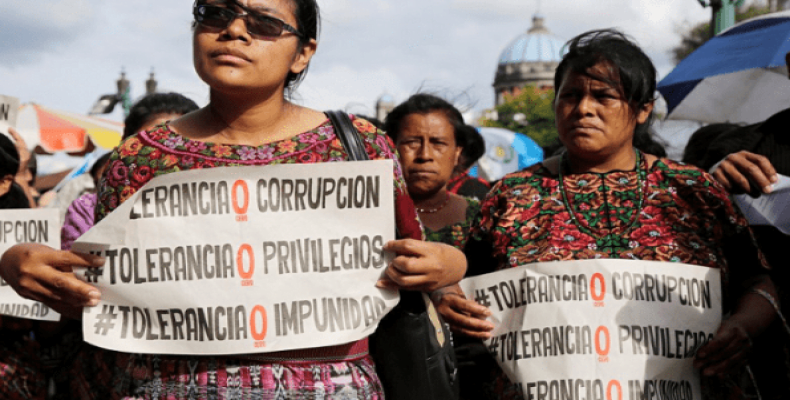Guatemala City, May 11 (RHC)-- In yet another interventionist move, U.S. Republican senator Marco Rubio has announced his country would halt funding to Guatemala's anti-corruption Comisión Internacional Contra la Impunidad en Guatemala (CICIG). The CICIG was created in 2006 by a United Nations order to investigate widespread high-level corruption within Guatemala.
CICIG's investigation into President Jimmy Morales was hampered by legislation passed in 2017 which granted the president impunity from corruption or embezzlement inquiries. Since then, the United Nations-backed judicial body has been trying to maneuver around such questionable constitutional laws that protect him and other high-ranking elected officials.
Rubio announced the suspension for the funding, which has already been authorized by Congress but not yet disbursed. The right-wing Florida senator said in a statement that he was concerned that the commission may have been "manipulated and used by radical elements and Russia's campaign against the Bitkov family in Guatemala."
The high profile Biktov case has piqued the U.S. interest. The Biktov family sought refuge in Guatemala after they left Russia in 2008 following threats from the Russian government-allied VTB Bank, which was pressuring Igor Bitkov to sell shares of his business, North-West Timber Co. In January 2015, Guatemalan authorities arrested the family, along with 36 others, for utilizing a criminal network to obtain fraudulent passports. CICIG and the Guatemalan public prosecutor’s office led the anti-corruption investigation. The trial resulted in a 19-year prison sentence for Igor, the Washington Post reported.
But despite Rubio's announcement that he would withhold $6 million meant for CICIG, those devoted to fighting corruption have vowed they would continue with the fight. Commission chief Ivan Velasquez tweeted: "The fight against impunity and against corruption must continue; it does not wait; it cannot be suspended or delayed. There is neither time nor space for pessimism, uncertainty, discouragement or fear."
Guatemalan lawmaker Andrea Villagran also said in a statement earlier this week that Washington lobbyists were misinterpreting the fight against corruption in Guatemala and hoped that Rubio's request won't last. "What Senator Rubio says should not do significant harm, since it is not a person who makes decisions — it is a group," Villagran said. "And we understand U.S. politics. They are institutional regardless of whether Democrats or Republicans are in power."
Latin American analysts warn that if the funding for the commission is canceled or delayed, it would render a serious blow to Guatemala’s anti-corruption efforts. The commission has so far aided Guatemala's attorney general’s office to pursue vigorous anti-corruption prosecutions.
Eric Olson, a Guatemala expert with the Wilson Center in Washington told the Washington Post that the U.N. commission "has been doing terrific work on a whole host of issues with the attorney general of Guatemala." Olson added: "It would be unfortunate if this led to some irreparable harm to those efforts."
Analysts in Guatemala denounce Marco Rubio's move to cut funds to UN's anti-graft commission


